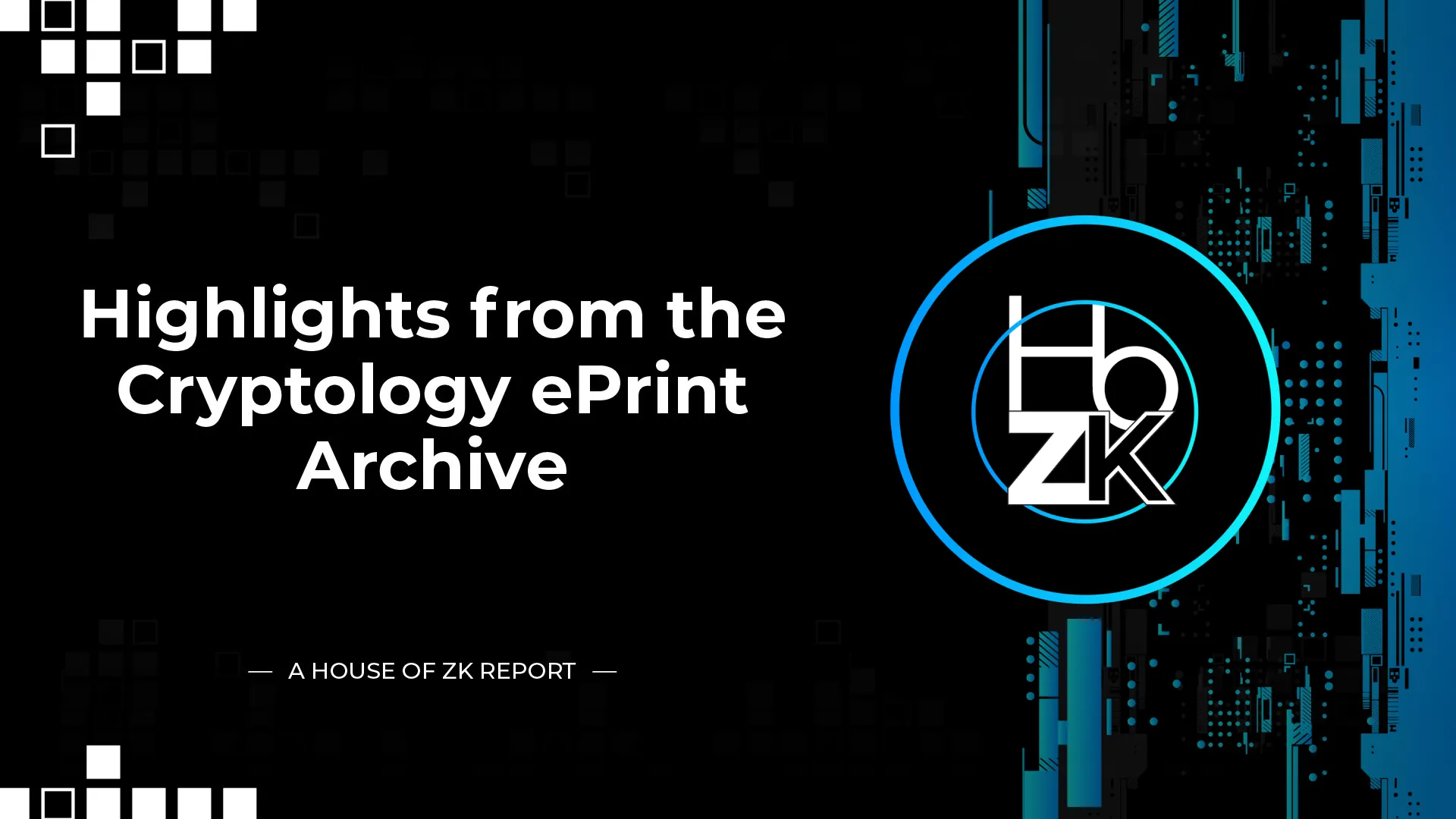
Coral: Fast Succinct Non-Interactive Zero-Knowledge CFG Proofs by @sebsgangel, @zkproofs, Elizabeth Margolin, Martin Sander and Jess Woods of @Penn, and @claucece of @brave: https://eprint.iacr.org/2025/1420
This paper presents Coral, a system that proves in ZK that a committed byte stream correctly parses into a structured object under a context-free grammar. Coral supports formats like JSON, TOML, and C, enabling users to prove facts about web responses, tokens, or programs without revealing the underlying data. It introduces segmented memory for efficient verification and runs on standard laptops, producing small, fast proofs that are easy to verify and practical for real applications.
Design ZK-NR: A Post-Quantum Layered Protocol for Legally Explainable Zero-Knowledge Non-Repudiation Attestation by Minka Mi Nguidjoi Thierry Emmanuel, Mani Onana Flavien Serge and Djotio Ndié Thomas and Atsa Etoundi Roger of @NgoaEkelle: https://eprint.iacr.org/2025/1422
The paper describes the design of ZK-NR, a cryptographic protocol intended to secure attestations in a post-quantum environment. It structures confidentiality, reliability, and legal opposability into three distinct layers: an “Iron Layer” using ZKPs and hybrid signatures, a “Gold Layer” providing contextual explanations, and a “Clay Layer” anchoring results in a tamper-evident ledger. Together these elements aim to resolve the so-called CRO trilemma by achieving composable security that remains legally interpretable and resistant to future quantum threats.
TLShare: Private Authenticated MPC and FHE Inputs Over TLS by @manel1874, Dimitris Mouris, @miguel_de_vega and @andreilapets of @nillionnetwork, and @xxiang_xie of @primus_labs: https://eprint.iacr.org/2025/1434
This paper reveals a framework called TLShare that enables authenticated data from standard TLS connections to be securely reused in multiparty computation (MPC) or fully homomorphic encryption (FHE) without server modifications. Unlike earlier oracle systems, which only produced yes/no statements, TLShare allows entire payloads to serve as private inputs while ensuring authenticity. The design relies on ZKPs, supporting both interactive and non-interactive modes, and makes it possible to combine inputs from multiple clients for applications such as financial risk assessment or wage equity analysis.
VOLE-in-the-Head Signatures Based on the Linear Code Equivalence Problem by Michele Battagliola of @UnivPoliMarche, Laura Mattiuz of @FBK_research, and Alessio Meneghetti of @unibait: https://eprint.iacr.org/2025/1436
This paper introduces three VOLE-in-the-Head-based protocols for proving knowledge of a solution to the Linear Code Equivalence Problem (LEP), enabling efficient ZKPs and digital signatures. Two models reduce LEP to the Multivariate Quadratic (MQ) problem, while the third adapts prior work to monomial matrices. Combined with the Fiat-Shamir transformation, the schemes yield publicly verifiable ZK signatures. While signature sizes increase, the approach improves computational efficiency, lowering complexity from O(n³) to O(n²) in the code dimension.
DIMSEPP: A Decentralized Identity Management System with Enhanced Privacy Protection by Yu Zhang of @NPUofChina and Zongbin Wang of Beijing Infosec Technologies: https://eprint.iacr.org/2025/1441
This paper describes DIMSEPP, a decentralized identity management system designed to strengthen privacy while keeping blockchain-based verification intact. Unlike existing DID approaches that risk exposing personal data, DIMSEPP stores only commitments on-chain and uses ZKPs to confirm information without revealing values. The system works efficiently on resource-limited devices, remains compatible with W3C DID standards, and passes formal security checks. Tests show it achieves fast, lightweight operations suitable for sensitive sectors such as healthcare and finance.
Leakage-Resilient Circuits against NC1, Revisited by Yuyu Wang of @UESTC1956: https://eprint.iacr.org/2025/1463
This work highlights new approaches to building leakage-resilient circuits against NC1-leakage, focusing on reducing reliance on secure hardware. The authors introduce a compact stateless scheme and extend it into a leakage-tolerant model with auxiliary input, later combined with adaptive encoding to form a stateful design. Their constructions use smaller encoders and hardware components compared to earlier methods, while relying on weaker assumptions for security. They also present links to fine-grained ZKPs and discuss inherent limitations of eliminating secure hardware altogether.
PQ-STAR: Post-Quantum Stateless Auditable Rekeying by @ShlomiDolev and Avraham Yagudaev of @bengurionu, and @motiyung of @Google: https://eprint.iacr.org/2025/1489
This study introduces PQ-STAR, a cryptographic scheme designed to enhance security against side-channel and key-search attacks in a post-quantum setting. The authors propose a stateless method of rekeying that also allows auditing, enabling authorized third parties to verify encrypted messages without exposing long-term secrets. Three versions are outlined: plain, commitment-based, and ZK. Each is formally proven to provide unique session keys, forward secrecy, and resistance to leakage, offering a practical option for upgrading symmetric-key systems.